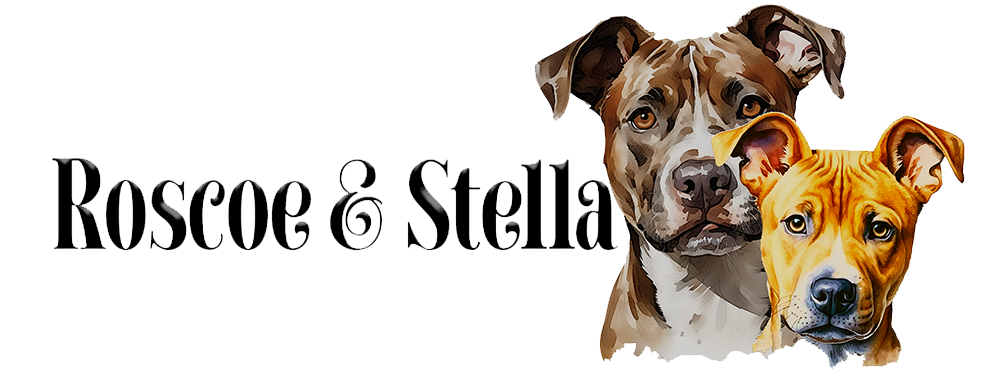Are Shiba Inus Dangerous? (The Truth)
By roscoenstella / June 25, 2025 / No Comments / Dog Blog
Shiba Inus are striking, spirited, and undeniably independent dogs that have captured the hearts of many dog lovers. But if you’ve ever read up on the breed or scrolled through dog forums, you may have stumbled upon stories suggesting that Shibas are aggressive, hard to control, or even dangerous. So what’s the truth?
Are Shiba Inus genuinely dangerous, or is their reputation misunderstood? In this article, we’ll take a closer look at the breed’s temperament, behavior patterns, and real-world considerations to help separate fact from fiction.
Why Do Some People Think Shiba Inus Are Dangerous?
Shiba Inus are not inherently dangerous, but they do have certain traits that can be misinterpreted or mishandled:
1. Strong-Willed and Independent
Shibas are not your typical eager-to-please dogs. They often resist commands if they see no benefit, and they can be stubborn during training. This independence can be mistaken for defiance or aggression by inexperienced owners.
2. Resource Guarding
Many Shibas have a strong instinct to guard their toys, food, or space. Without proper socialization and boundaries, this can lead to growling or snapping.
3. Dog-to-Dog Aggression
While some Shibas get along fine with other dogs, many have a strong prey drive and may be reactive toward other animals, especially of the same sex. A 2009 study by the University of Pennsylvania found that Shiba Inus scored above average in dog-directed aggression compared to other breeds.
4. Low Tolerance for Rough Handling
Shibas don’t generally enjoy being picked up, restrained, or handled in ways they’re not comfortable with. Without gradual desensitization, they may react with snapping or avoidance.
5. The Shiba Scream
This infamous high-pitched scream isn’t aggression, but it’s often mistaken as such. Shibas emit this sound when they’re upset, excited, or resisting something they dislike—like nail trimming or baths.
Would your Shiba Inu protect you? (Related article)
Are Shiba Inus Aggressive Toward Humans?
Generally, no. Most Shiba Inus are not aggressive toward humans when raised in a healthy environment. They are often reserved with strangers and selective in their affections, but they aren’t inherently dangerous.
However, without proper training and early socialization, behavioral issues can develop. A poorly socialized Shiba may show fear-based aggression or become territorial. This makes it especially important for first-time Shiba owners to be proactive with obedience training and positive experiences.
Full list of the most dangerous dog breeds this year!
Do Shiba Inus Bite?
Like any breed, Shiba Inus can bite—but this behavior is usually a result of fear, pain, or a lack of proper boundaries. According to data from dog bite insurance claims, Shiba Inus do not rank among the top 10 breeds involved in serious bite incidents in the U.S.
Most reported Shiba-related bites tend to be minor and involve resource guarding or mishandling. With proper training, this behavior is very manageable.
Tips for Raising a Well-Behaved Shiba Inu
If you’re considering adding a Shiba to your family, here are some ways to ensure they grow into a well-mannered companion:
Start early socialization — Introduce your Shiba to a wide range of people, places, and other dogs from a young age.
Use positive reinforcement — Harsh methods often backfire with this breed. Reward good behavior with treats, praise, and patience.
Set clear boundaries — Don’t let your Shiba call the shots. Be consistent with rules and routines.
Provide daily mental and physical stimulation — Puzzle toys, training sessions, and exercise are essential.
Hire a trainer if needed — If problems arise, don’t wait. A behaviorist experienced with primitive breeds can help.
Managing Shiba Inu Behavior in the Home
To prevent behavioral issues from developing or escalating, it’s important to proactively manage your Shiba Inu’s environment. One effective approach is to establish structured routines for feeding, walking, and play. Shibas do best when they know what to expect each day, and predictability can help reduce anxiety-driven behavior.
Another useful strategy is controlled exposure to stimuli. If your Shiba becomes reactive to specific triggers like visitors or other dogs, controlled desensitization can help lower their reactivity over time. Short, positive experiences paired with rewards can gradually change their associations and reduce outbursts.
Lastly, consider implementing crate training—not as punishment, but as a way to create a secure space. Many Shibas benefit from having a “den” they can retreat to when overstimulated. This alone can help prevent overstimulation from turning into aggression or destructive behavior.
Final Thoughts
Shiba Inus are not dangerous dogs—but they are unique, strong-minded, and not for everyone. Much of their so-called aggression stems from miscommunication, lack of training, or unrealistic expectations.
For the right owner—someone who’s patient, experienced, and consistent—a Shiba Inu can be an incredibly rewarding companion. With the right approach, this spirited breed can thrive in a loving home without posing any danger at all.
As with any dog, it’s not about the breed alone—it’s about how they’re raised, understood, and respected.
